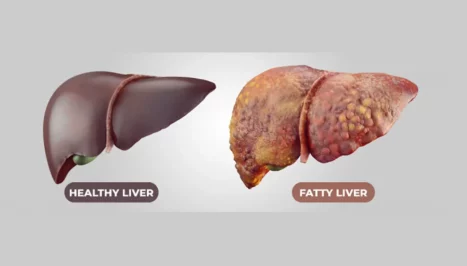11 Important Things You Should Do Before Weight Loss Surgery

In this article, we first review the essential preparations before weight loss surgery performed through laparoscopy. Then, we explain the factors that help you lose weight effectively, maintain the results, and experience a successful surgery.
If you are planning to undergo a weight-loss surgery such as gastric sleeve soon, read the details of this guide carefully.
1. 11 Important Steps to Prepare Before Weight Loss Surgery
You need to make constructive, small lifestyle adjustments before weight loss surgery so that you enter the operating room with better readiness and lower potential risks. Some of the key steps include:
Important Steps and Brief Descriptions
| Number | Important Step | Short Description |
|---|---|---|
| 1 | Gain enough information | Study different types of weight loss procedures; watch patient experiences and educational videos |
| 2 | Review costs & insurance coverage | Check your basic and supplementary insurance; verify BMI > 40 and obesity-related conditions |
| 3 | Quit smoking | Stop all nicotine use at least 3 months before surgery; seek medical support if needed |
| 4 | Make lifestyle changes | Adjust meals (3 main + 2 snacks); increase protein, fruits, vegetables; avoid fast foods |
| 5 | Focus on eating habits | Track daily habits; identify and fix unhealthy behaviors |
| 6 | Increase water intake | Drink around 8 glasses of water daily; avoid sugary or carbonated drinks; no liquids with meals |
| 7 | Start regular exercise | Begin with light activities like walking; consistency matters more than intensity |
| 8 | Commit to weight stability | Avoid overeating; follow pre-op weight-loss recommendations |
| 9 | Support mental health | Track emotions; seek support; find healthy coping methods |
| 10 | Complete required tests | Full blood work, urine test, ultrasound, heart & lung evaluation, thyroid function |
| 11 | Choose an experienced surgeon | Review the surgeon’s background, expertise, and patient outcomes |
1. Gain More Knowledge About Weight Loss Surgery
Although many patients simply want to lose weight and improve their health, understanding why and how these surgeries work can make a big difference in your experience.
It’s better to educate yourself before weight loss surgery by reading reliable sources, browsing articles, or watching educational materials.
Many websites and medical resources cover everything from the pre-operative phase to the operation and recovery steps.

You can watch educational videos, review before-and-after galleries, and read patient stories to gain realistic expectations.
2. Understand the Costs and Insurance Coverage
Weight-loss operations can be expensive, and if you are an eligible candidate, your insurance may cover a significant portion of the costs.
Speak with your insurance provider (both basic and supplementary) to see whether they cover bariatric surgery. Usually, insurance companies approve surgery for patients with:
- BMI above 40, or
- Obesity-related conditions such as diabetes, sleep apnea, and hypertension.
Some coverage decisions may also depend on your surgeon’s documentation.
Common questions include:
- How do I calculate my BMI?
- Am I a good candidate for weight loss surgery?
- How much does the surgery cost?
3. Quit Smoking or Any Nicotine Use
Studies show that smoking—including nicotine and tobacco—can significantly increase complications after bariatric surgery.
Patients must remain smoke-free for at least 3 months before weight loss surgery.
If quitting is difficult, seek help from a physician or therapist.

4. Make Lifestyle Changes
Pre-operative lifestyle modifications are essential. Those who fail to adjust their habits before the operation may struggle afterward.
For example:
- Limit your meals to three small main meals and two healthy snacks
- Eat a complete breakfast daily
- Keep at least a 4-hour gap between your last meal and bedtime
- Follow a diet rich in protein, fruits, and vegetables
- Reduce or avoid sweets, high-fat meals, fast foods, and restaurant foods
5. Focus on Your Eating Habits
Track what you eat for at least one week.
Recording your food intake helps identify unhealthy patterns and makes it easier to fix them.
This step significantly improves your weight-loss results after surgery.
6. Drink More Water and Limit Other Beverages
Stay hydrated by drinking at least 64 ounces (about 8 glasses) of water daily.
Avoid high-calorie drinks such as:

- Soda
- Alcohol
- Fruit juices
- Energy drinks
- Coffee with sugar or cream
Limit caffeine and carbonated beverages.
Also, avoid drinking liquids with meals—wait 30 minutes after eating before drinking.
7. Add Regular Exercise to Your Daily Routine
If you don’t exercise, start adding short but consistent activities to your day:
- Light walking
- Seated exercises
- Any enjoyable physical activity
Consistency is more important than intensity.
8. Commit to Staying at a Stable Weight
Avoid gaining weight before weight loss surgery.
Stick to your recommended diet and avoid overeating.
Some patients may be asked to lose a few kilograms before the procedure.
9. Focus on Your Mental and Emotional Health
Start paying attention to emotional triggers that affect your eating or lifestyle.

You can:
- Keep a journal
- Write about changes in your motivation and habits
- Surround yourself with supportive, positive people
- Use non-food coping strategies for emotional stress
Remember: real change takes time, small steps, and realistic goals—not perfection.
10. Complete All Required Pre-operative Tests
Common tests before weight loss surgery include:
Basic Tests
- Complete blood count
- Urine test
- Chemistry panel
- Abdominal and pelvic ultrasound (gallbladder ultrasound if needed)
Additional Tests
- Chest X-ray
- Upper endoscopy
- ECG (electrocardiogram)
- Lung function test
- Echocardiography
- Sleep study (if required)
- Psychiatric evaluation
- Cardiology consultation
- Anesthesia consultation
What Is the Purpose of These Tests?
A thorough evaluation is necessary before weight loss surgery to ensure patient safety.
Identifying potential risks beforehand is the best way to prevent complications.

For example:
- Thyroid function must be normal
- Diabetic patients must control blood sugar
- Heart function must be properly assessed
These tests help diagnose issues such as liver dysfunction, respiratory problems, electrolyte imbalance, or abnormal cholesterol levels.
11. Find a Skilled and Experienced Bariatric Surgeon
Choosing the right surgeon is the most important step.
Even if you follow all the preparations perfectly, a surgeon without sufficient expertise may jeopardize your results.
Review the surgeon’s experience, credentials, and previous patient outcomes.
What to Bring on the Day of Weight Loss Surgery
Items you may need during your hospital stay include:
- Hairbrush or comb
- Bathrobe
- Shampoo
- Lotion or moisturizer
- Soap
- Toothbrush and toothpaste
- Loose, comfortable clothes
- Books or magazines
- Makeup items
- Lip balm
- Hairdryer
- Deodorant or body spray

Avoid bringing jewelry or valuable items.
The Day of Weight Loss Surgery
Patients are usually required to arrive at the hospital two hours before the procedure.
You will receive your hospital gown and pre-operative medications.
Then, you will meet the anesthesiologist and your surgeon before entering the operating room.
Depending on the type of procedure (gastric sleeve, gastric band, etc.), the surgery lasts 30 minutes to 2 hours.
After the operation, you will spend about an hour in the recovery room before being transferred to your private room.
A nurse will help manage pain and encourage you to walk every two hours.
The Next Day
You will undergo an X-ray to check for leaks or complications.
Most patients stay 1 to 3 days in the hospital.

Frequently Asked Questions About Preparing Before Weight Loss Surgery
To better understand the procedure, set realistic expectations, and prepare mentally.
At least 3 months before weight loss surgery.
Following a proper eating pattern:
three small meals + two healthy snacks.
Regular walking and light daily activities.
Consistency matters most.
Full blood work, heart assessment, and thyroid evaluation.
Comfortable clothing, hygiene products, and essential personal items.



